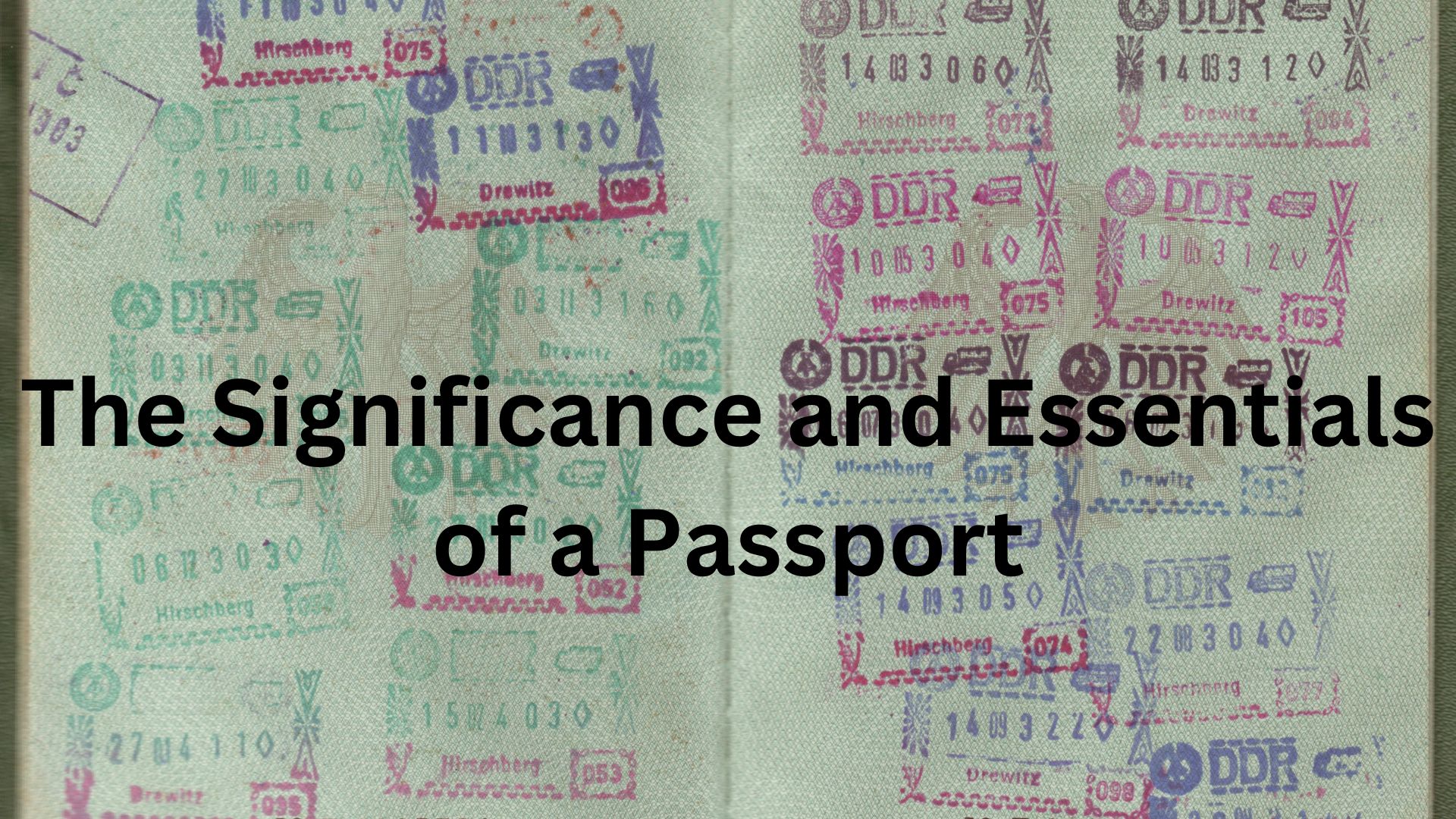The Significance and Essentials of a Passport
Introduction:
Apply for passport is not merely a travel document; it’s a powerful symbol of identity and citizenship, granting individuals the freedom to explore the world. In this article, we will delve into the significance of a passport, its essential components, and the importance it holds in today’s globalized world.
What is a Passport?
A passport is an official government-issued document that serves as proof of an individual’s identity and nationality. It is a globally recognized travel document that allows its holder to cross international borders, seek entry into foreign countries, and return to their home country. While passports primarily facilitate international travel, they also serve as crucial identification documents for various other purposes.
Significance of a Passport:
Identity and Nationality: A passport is a primary means of establishing one’s identity and confirming their citizenship. It contains essential personal information such as name, date of birth, photograph, and a unique identification number.
International Travel: The primary function of a passport is to facilitate international travel. It serves as an entry permit and a record of legal exit from a country. Without a valid passport, crossing international borders becomes challenging, if not impossible.
Visa Applications: Many countries require travelers to obtain a visa for entry, and a valid passport is a prerequisite for visa issuance. The passport contains visa stamps or stickers, indicating the countries the traveler has visited or plans to visit.
Legal Documentation: Passports are often required for various legal transactions, such as opening bank accounts, applying for visas, or purchasing property in a foreign country.
Components of a Passport:
Personal Information: This section includes the passport holder’s full name, date of birth, gender, place of birth, and a photograph for identification.
Passport Number: A unique alphanumeric code assigned to each passport for tracking and verification.
Nationality and Issuing Authority: Indicates the country of citizenship and the government agency responsible for issuing the passport.
Signature: The passport holder’s signature for further verification.
Expiration Date: Specifies when the passport is no longer valid for travel. Renewal is required before this date to continue international travel.
Visa Pages: Blank pages that can be used for visa stamps and entry/exit stamps from foreign countries.
Security Features: Passports incorporate various security measures, including holograms, watermarks, and microprinting, to prevent forgery and counterfeiting.
Also Read: Passport Apply Online in India
Importance of Passport in the Modern World:
Global Mobility: Passports enable individuals to explore different cultures, conduct business internationally, and build relationships across borders.
Security and Accountability: Passports help governments track the movement of their citizens, ensuring their safety and enabling consular services in case of emergencies.
International Relations: Diplomatic and political interactions often require individuals to travel on official business, necessitating a passport for identification and access.
Conclusion:
In today’s interconnected world, a passport is more than just a travel document; it represents one’s identity, citizenship, and the freedom to explore the globe. Its significance extends beyond tourism, influencing legal, economic, and diplomatic aspects of international relations. Therefore, it’s crucial to protect and maintain this valuable document and understand its role in facilitating global connections.
